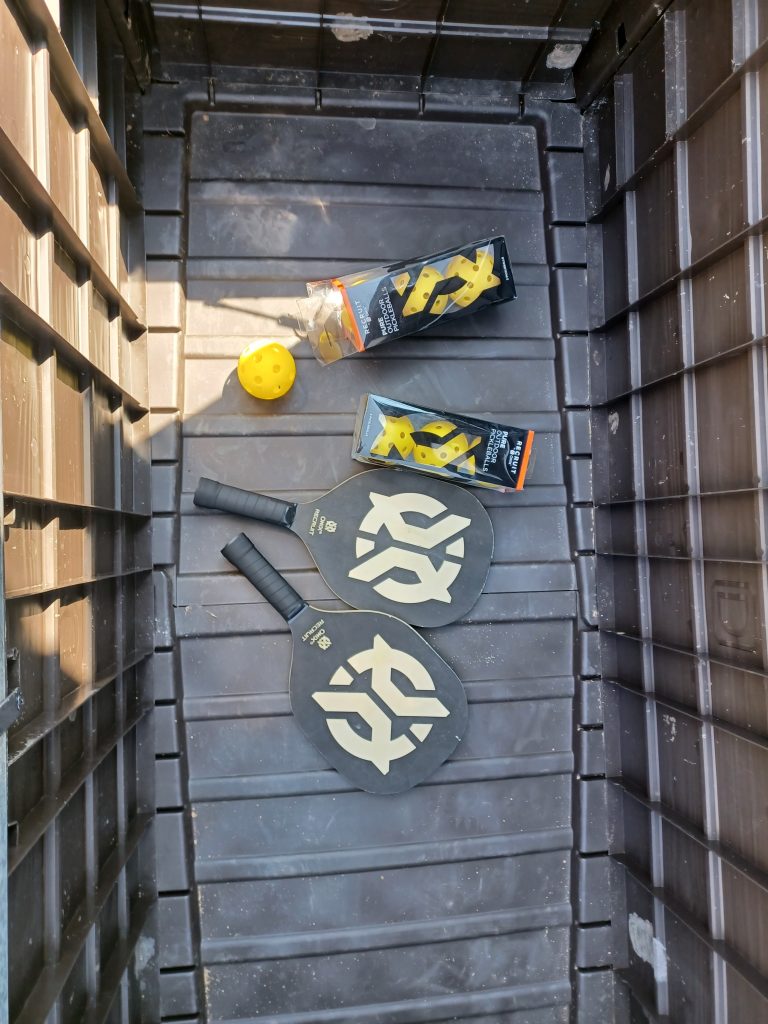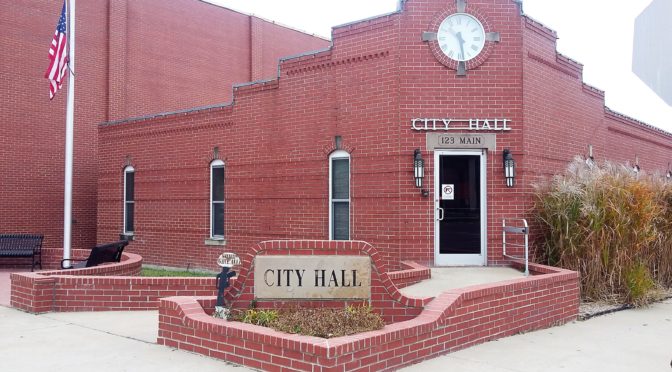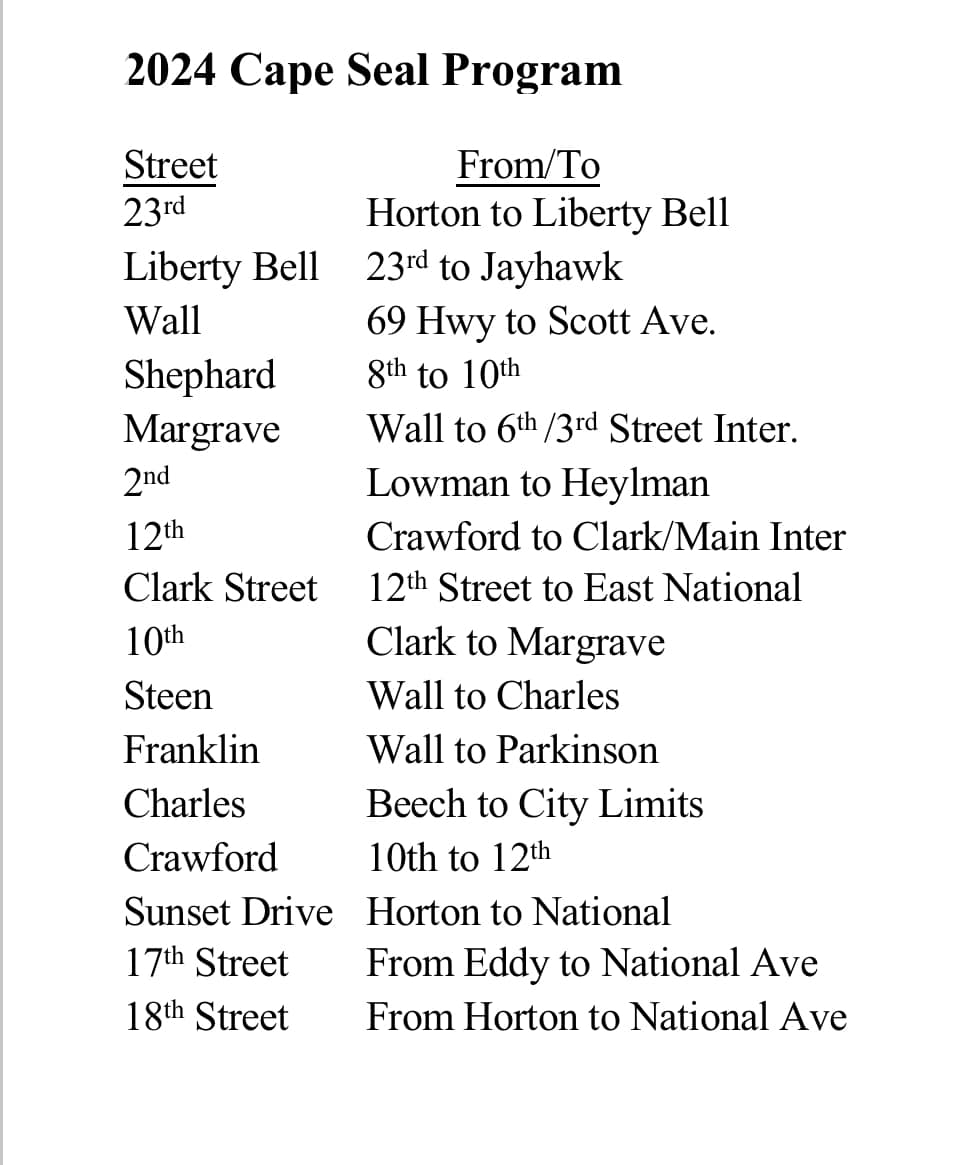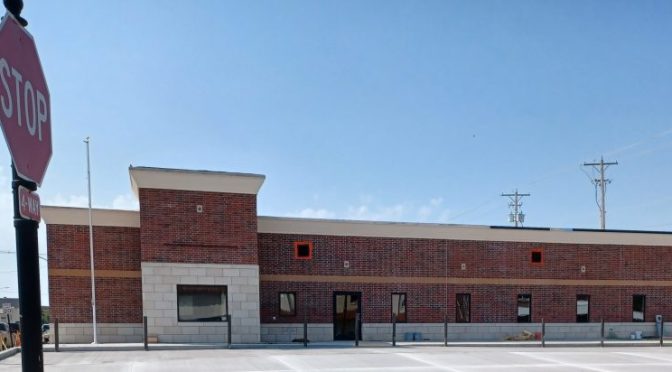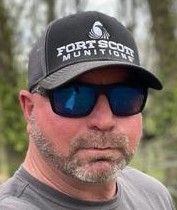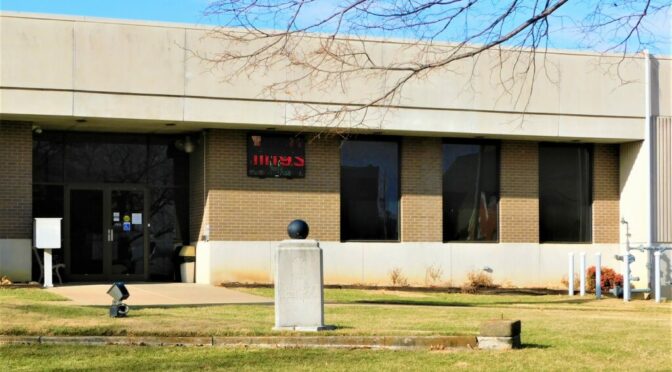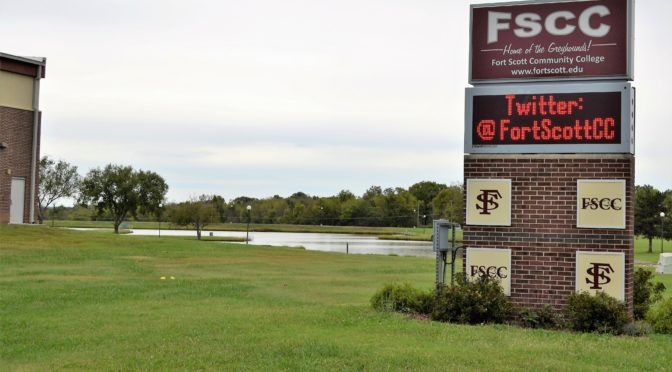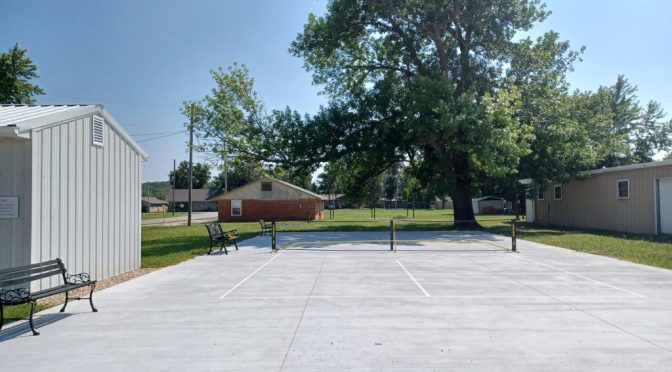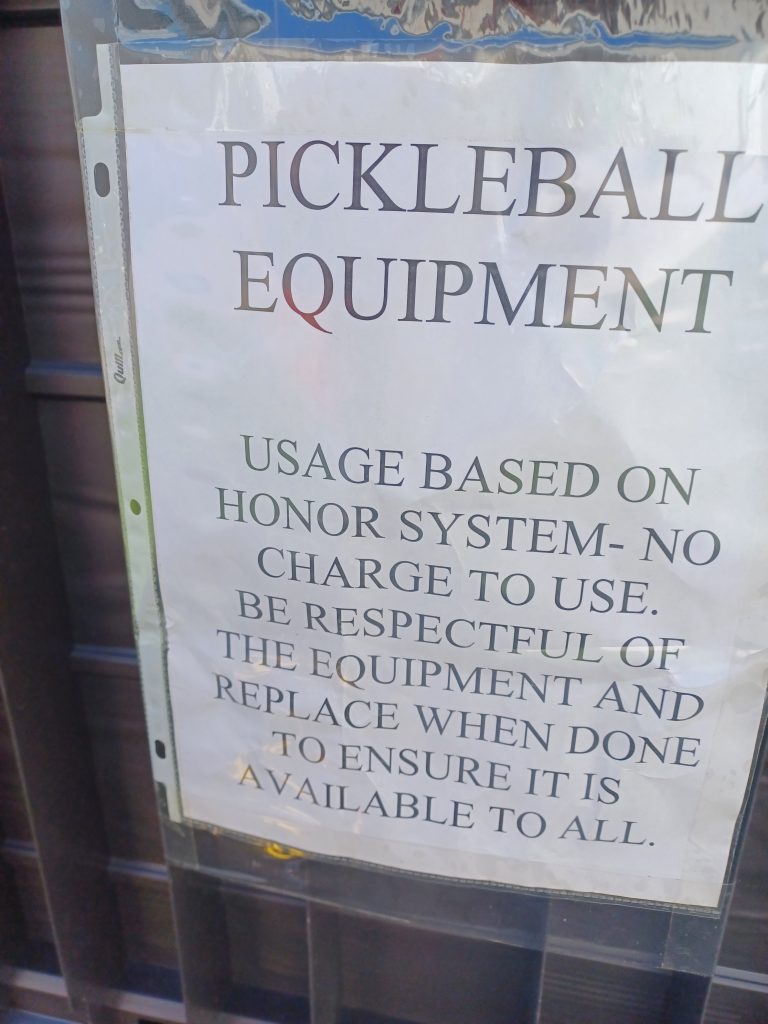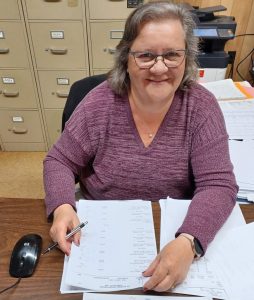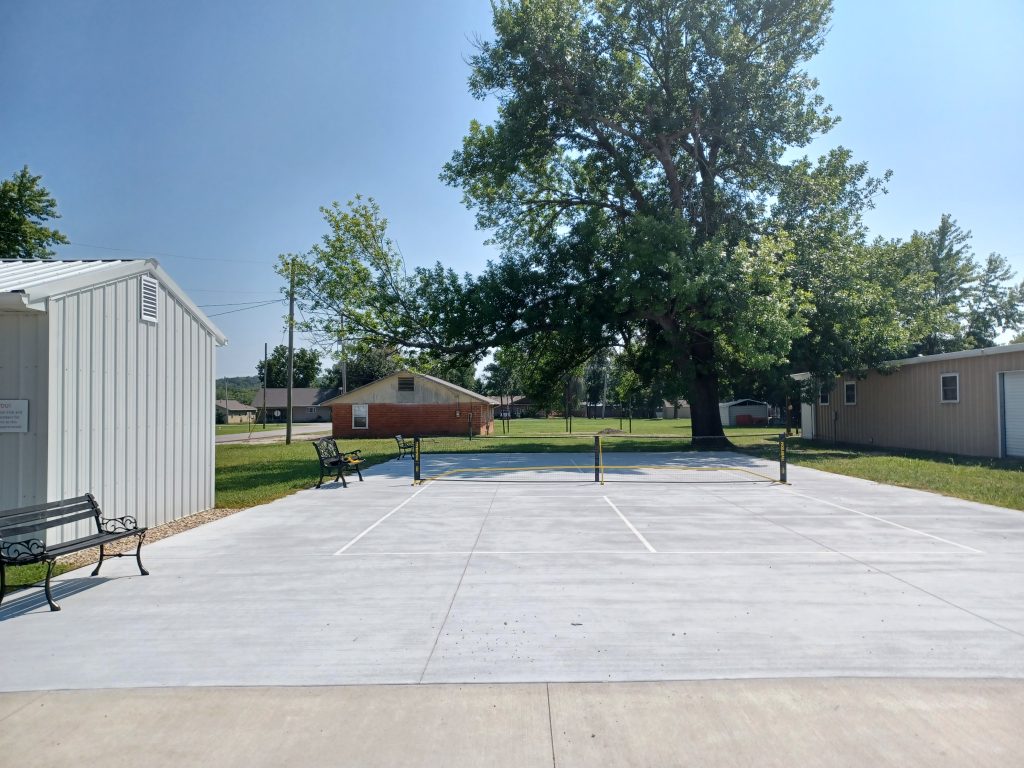Category Archives: Government
Governor Kelly Announces August Total Tax Collections Surpass Estimate by Nearly $23M
TOPEKA – Governor Laura Kelly announced today that the August 2024 total tax collections were $665.6 million. That is $22.8 million, or 3.5% more than the estimate. Total tax collections are up 4.0% from August 2023.
“While we are seeing collections higher than the estimate, we likely won’t see the impact of the income tax cuts from Senate Bill 1 on monthly collections until the beginning of next year,” Governor Laura Kelly said. “Because of that timing, we must continue to be fiscally responsible for our long-term outlook.”
Individual income tax collections were $329.4 million, which is $19.4 million, or 6.3% more than the estimate and up 10.1% from August 2023. Corporate income tax collections were $20.2 million, which is $9.8 million, or 32.8% less than the estimate and down 19.7% from August 2023.
Combined retail sales and compensating use tax receipts were $294.6 million, which is $12.6 million, or 4.5% more than the estimate and up $2.2 million, or 0.7% from August 2023.
Click here to view the August 2024 revenue numbers.
###
Kansas Dept. of Children and Families New Building To Open Soon In Fort Scott
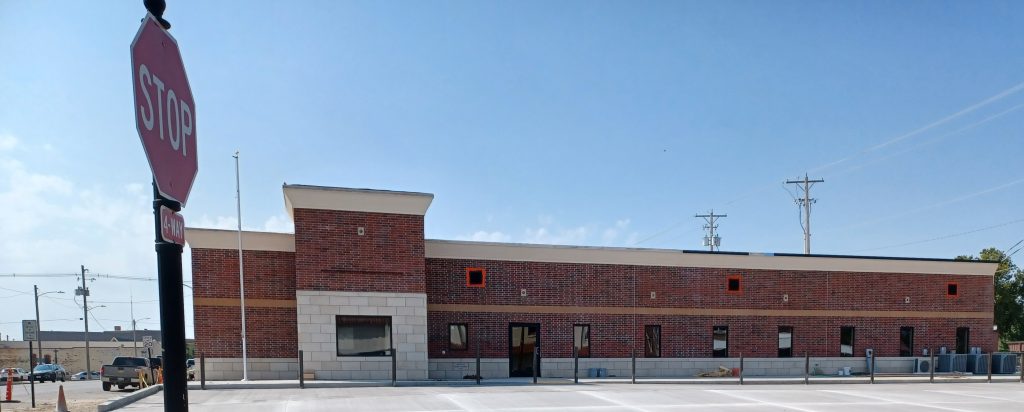
The new Department of Children and Families building is located at National Avenue and Wall Street and is 13, 642 square feet.
“The new building will include safety features to protect employees and clients such as secure interview rooms, electronic access management system, a video surveillance system and other office renovations to suit the functionality and needs of DCF,” said Anita Cooper, Southeast Regional Director for the Kansas Department for Children and Families.
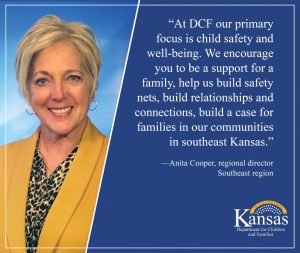
“A more centralized location will make it easier for residents in Fort Scott and the surrounding area to access the service center,” she said. “The new building puts us back in the downtown area where we were originally located. We are excited to be a part of the downtown community! ”
The Kansas Department for Children and Families offers a wide range of programs and services to help vulnerable Kansans.
“As of May 2024 (the most recent report), the total number of households in Bourbon County served by DCF was 878,” Cooper said. “That includes 21 served by the Temporary Assistance to Needing Families (TANF) program, 817 served by food assistance (FA) and 40 served by child care assistance (CC). The Fort Scott office also manages the cases for people living in Linn County. Total households served in Linn County: 419 (5 TANF, 402 FA and 12 CC). In addition, Child Protection Services provides child and family well-being services to approximately 417 families a year out of our Fort Scott office.”
There are 29 staff members based out of the Fort Scott office with hours of operation are 8 a.m.-5 p.m. Monday through Friday.
The new building is located at 10 S. National Ave., Fort Scott. The phone, fax, etc. will all remain the same numbers when they move in, in the next month.
“We are leasing our current office location at the Fort Scott Professional Building, 710 W. 8th St. We’ve been in this location since 2009. The new building will be leased as well through SilverRock Ventures, LLC based out of Junction City,” Cooper said.
owner and builder of the building.

“We will own it and it is leased to the State of Kansas Department for Children and Families,” Schoenrock said. “The State will look to take occupancy (of 10 S. National Avenue) in the next four weeks or so.”
“This project is very important for the State of Kansas, to retain jobs in Fort Scott,” Schoenrock said in a prior interview https://fortscott.biz/news/ks-department-of-children-and-families-office-building-is-being-built-at-wall-and-national-avenue. “They could have moved the DCF to another community. In addition, it will spur money for retail and restaurants in the downtown area.”
“This project will get a lot of people for downtown businesses,” he said. “They will eat downtown, shop downtown, etc.”
The demolition was done by Skitch’s Hauling and Excavating, Inc.
After demolition was completed, his team got to work putting the building on the south side of the lot, with parking on the north.
“Many people helped make this happen,” he said. “Bailey Lyons with Lyons Realty Group, Rob Harrington with Bourbon County Regional Economic Development and Brad Matkin and Matthew Wells, with the city. And Arnold Scholfield with the Fort Scott Design Review Board provided good, solid feedback for the project.”
“They should be praised,” he said. “Fort Scott has been very supportive. I couldn’t have asked for more support from the city. That’s what is needed to spur development.”
Name In Stone
Agenda for the Fort Scott City Commission on Sept. 3
NOTICE OF AND AGENDA FOR REGULAR
MEETING OF FORT SCOTT CITY COMMISSION
City Hall Commission Room – 123 S. Main Street, Fort Scott, KS 66701
September 3, 2024 – 6:00 P.M.
- Call to Order
- Roll Call
Tim VanHoecke, Matthew Wells, Dyllon Olson, Kathryn Salsbury, Tracy Dancer
III. Pledge of Allegiance
- Invocation
- Approval of Agenda
- Consent Agenda
- Approval of Appropriation Ordinance 1367-A – Expense Approval Report – Payment Dates of August 15, 2024 – August 2024 – $1,831,904.90
- Approval of Minutes for August 6, 2024, Regular Meeting – August 20, 2024, Regular Meeting.
- Request to Pay – Earles Engineering, Inc. – Invoice No. 17444 – Project No. 24-414 – Horton St. & 6th Improvements – $33,805.45
- Request to Pay – Heck & Wicker, Inc. – Payment No. 2 – $282,995.42
- Request to Pay – Olsson – Project #021-06610 Fort Scott KS Rehabilitate Runway and Taxiway – AIP Project No. 3-20-0022-021 (Design) AIP Project No. 3-20-0022-023 (Construction) Summary No. 17 – Professional Services rendered through May 4, 2024 – Invoice No. 497880 – $5,735.07
- Request to Pay – Olsson – Project #021-06610 Fort Scott KS Rehabilitate Runway and Taxiway – AIP Project No. 3-20-0022-021 (Design) AIP Project No. 3-20-0022-023 (Construction) Summary No. 18 – Professional Services rendered through June 8, 2024 – Invoice No. 501825-Final – $16,815.60
- Request to Pay – Emery Sapp & Sons, Inc. – Project #021-06610 Fort Scott KS Rehabilitate Runway 18/36 and Taxiways (Asphalt Overlay) – AIP Project No. 3-20-0022-023 (Construction) – Invoice No. 4 – Work Completed through May 3, 2024 –$154,949.84
VII. Public Comment – Sign up required before the beginning of the meeting on register at the entrance of the Commission Room. Public Comments are for any topic not on the agenda and limited to five (5) minutes per person, at the Commission’s discretion.
VIII. Appearances – Must be scheduled with the City Clerk at least (1) week prior to the meeting
you wish to address the Commission. You will be scheduled on the agenda to speak on your topic.
- James Wood/Owner of Holmtown Pub – 206 N. National – Temporary Street Closure –September 9, 2024 – 4:00PM to 9:00PM – Pine Street from National to alley Special Event: ‘Straight Outta Clarksdale’
- Diane Striler – Update on Downtown Ice Rink MOU
- Unfinished Business
- Consideration to Approve Ordinance No. 3770 – Land Bank Board of Trustees – Appointment – Terms – Dissolution – Tabled from August 20, 2024 – D. Olson
- Update of 118 E. Wall – Kruger
- New Business
Action Items:
- Consideration of Proposed Change of Zoning Regulations – Article 20: Supplemental District Regulations – Section 7: Accessory Uses – Storage Containers – Kruger
- Consideration of Resolution No. 19-2024 – Demolition Proceedings for 1721 E. Wall
- Consideration of Resolution No. 20-2024 – Demolition Proceedings for 323 W. Wall
- Consideration of Resolution No. 21-2024 – Demolition Proceedings for 1619 E. Pine
- Consideration of Resolution No. 22-2024 – Demolition Proceedings for 1105 Scott
- Consideration of Resolution No. 23-2024 – Demolition Proceedings for 402 S. Lowman
- Consideration of Resolution No. 24-2024 – Demolition Proceedings for 418 S. Couch
- Consideration of Resolution No. 25-2024 – RHID – Housing Needs Resolution – A RESOLUTION MAKING CERTAIN FINDINGS AND DETERMINATIONS AS TO THE NEED FOR HOUSING WITHIN THE CITY FOR FORT SCOTT, KANSAS AND SETTING FORTH THE LEGAL DESCRIPTION OF REAL PROPERTY PROPOSED TO BE DESIGNATED AS ONE OR MORE REINVESTMENT HOUSING INCENTIVE DISTRICTS WITHIN THE CITY – G. Herrmann
- Consideration of Change Order No. 1 – Project No. 22049 Horton St. & 6th Improvements – Contract No. 6 U-2455-01 – Heck & Wicker, Inc. – Additional Inlet Protection, Concrete Pipe Encasement, Sanitary Sewer Service, Extra Pothole Work at 8th & Horton, Tree Removal at 7th & Horton – $4,810.00 – J. Dickman
- Brick Street Policy Revisions Discussion – B. Matkin
- Consideration to research legal requirements and estimated legal costs for the City of Fort Scott to annex southward from the currently southernmost City limits along Jayhawk Road and eastward to envelop the Fort Scott Municipal Airport, Lake Fort Scott, and City-owned land adjacent to Lake Fort Scott – T. Dancer
Public Hearing: 2025 Budget Hearing
- Consideration of Resolution No. 26-2024 – A RESOLUTION TO EXCEED THE REVENUE NEUTRAL RATE – Hart
- Consideration to Adopt the 2025 Budget – Hart
- Reports and Comments
- City Manager Comments
- Engineering Comments
- Commissioners Comments
- City Attorney Comments
XII. Adjourn
City of Fort Scott Minutes of August 20
CITY OF FORT SCOTT CITY COMMISSION MEETING
Minutes of August 20, 2024 Regular Meeting
The regular meeting of the Fort Scott City Commission was held August 20, 2024, at 6:00PM in the City Commission Meeting Room at City Hall, 123 S. Main Street, Fort Scott, Kansas. Meeting available on City of Fort Scott YouTube Channel. Time stamps according to recording.
Meeting called to order at 6:00PM. Commissioners Tim VanHoecke, Dyllon Olson and Kathryn Salsbury were present with Mayor Tracy Dancer. Matthew Wells was absent.
Audience in Attendance – Brad Matkin/City Manager, Bob Farmer/City Attorney, Jason Dickman/City Engineer-Earles Engineering, Jason Pickert/Police Chief, Dave Bruner/Fire Chief, Norm Nation/Lead of Codes Enforcement, Leroy Kruger/Codes Enforcement Technician, Lisa Lewis/City Clerk, Larry Giddens, Garrett Knight, Cory Bryars, and Michael Hoyt.
- Dancer led the Pledge of Allegiance. T. VanHoecke said a prayer asking God for guidance for the City, our Government and City officials.
Approval of Agenda – (Time stamp 1:46)
MOTION: D. Olson moved to approve the agenda with the amendments of the typo of August 2, 2024, Minutes of the Regular Meeting (corrected to August 6, 2024) and that those minutes be removed from the current Consent Agenda for a correction to the Memorial Hall Proposal in the amount of $82,393.00 to Mid-Continental Restoration Co., Inc. before approval. It appeared in the minutes as $823,000.00. T. VanHoecke seconded the motion. All voted yes.
MOTION PASSED BY 4-0 VOTE.
Public Comment
Laramie Giddens – (Time stamp 3:21) – 1618 E. Elm – appeared before the Commission in support of the request for a zoning change from residential to commercial for the purpose of a mechanic’s shop at 223 N. Franklin. He addressed the various issues expressed by his neighbors at the July 24, 2024, Planning Commission meeting of Case No. 1047 as well as his concern for consideration of personal property rights.
Cory Bryars – (Time stamp 3:21) – commended Laramie Giddens on a job well done in expressing his opinions to the Commission. He appeared to update on the public 501c3 organization, Care to Share. He stated that he last appeared on July 2, 2024. He expressed his thanks to the City for their support in the golf tournament where they raised approximately $20,000.00 net proceed. He wanted to share with the community what they have achieved and what they can give back. They are fully volunteer and raise money by fundraising events and donations. He explained the various things the organization does for cancer fighters, their families and their caregivers. He asked that he wanted the community to be aware that Care To Share is available to help in Bourbon, Crawford and Linn County, they are fully volunteer, they welcome volunteers and donations. They can be contacted through Facebook (CareToShareSEK) or by calling (620) 644-9090. They are housed at the old hospital, and he thanked Legacy, KRI and upcoming Freeman. The upcoming fundraiser will be a 3-day event called Fort Fest 24, September 27, 28 and 29 at Riverfront Park. Details are available on Facebook (FortScottFortFest) and local flyers.
Michael Hoyt – (Time stamp 14:45) – appeared before the Commission and thanked everyone who took the time to sign the petition enabling a vote to move from three (3) to five (5) County Commissioners. He stated that they were seventy-five (75) signatures short and a week until the deadline, however the County Commissioners agreed to pass a resolution (at their last meeting).
Appearances
Dave Bruner/Fire Chief (Time stamp 16:21) – appeared before the Commission in the absence of Mike Miles/Deputy Fire Chief to an upcoming event, Fort Scott Fire Department’s First Annual 9/11 Stair Climb, 5K Run and Walk Challenge on Saturday, September 7, 2024, beginning about 8:45AM at FSHS. Registration and details are available on Facebook (Fort Scott Fire Department), by QR codes on flyers around town, calling the fire station at (620) 223-8106 or Mike Miles at [email protected]. Volunteers are welcome for the events and there are business sponsorships available, or donation of water is appreciated. The money raised by the event will be used for the training of high school seniors who want to move into the fire service with the FSFD.
Alison Leach – (Time stamp 20:11) – Mowing Proposal – did not appear.
Unfinished Business
Consideration to Approve Ordinance No. 3769 – Golf Cart Ordinance – (Time stamp 21:29) – Tabled from July 29, 2024, and August 6, 2024
MOTION: T. VanHoecke moved to approved Ordinance No. 3769 after striking Section 1(b) due to repetitive phrase in Section 1(f). K. Salsbury seconded the motion. All voted yes.
MOTION PASSED BY 4-0 VOTE.
Consideration to Approve Ordinance No. 3770 – Land Bank Board of Trustees – Appointment – Terms – Dissolution – (Time stamp 23:51)
- Olson presented the concerns regarding the stability of the current Land Bank Board and offered several suggestions for the Commission to consider. Discussion was had about the options. M. Hoyt offered a suggestion as a member of the Land Bank Board.
MOTION: T. VanHoecke moved to table this item until September 3, 2024. K. Salsbury seconded the motion. K. Salsbury, T. VanHoecke and T. Dancer voted yes. D. Olson voted no.
MOTION PASSED BY 3-1 VOTE.
New Business
Action Items:
Consideration of Land Bank Board Membership Term Limit for Bailey Lyons – (Time stamp 38:00) – Staff Request for Commission Action by Mary Wyatt/Planning, Housing and Community Development Director.
MOTION: T. VanHoecke moved to approve the request to extend Bailey Lyons’ term on the Land Bank Board through February 2025. D. Olson seconded the motion. All voted yes.
MOTION APPROVED BY 4-0 VOTE.
Public Hearing:
Case No. 1047 – Request for Zoning Change from Residential to Commercial (C3) for the Purpose of a Mechanic’s Shop at 223 N. Franklin – Garrett Knight – Not recommended by the Planning Commission on July 24, 2024.
MOTION: T. VanHoecke moved to open the Public Hearing at 6:39PM (Time stamp 39:20). D. Olson seconded the motion. All voted yes.
MOTION PASSED BY 4-0 VOTE.
- Farmer left the meeting (Time stamp 39:23)
(Time stamp 39:59) – Garrett Knight (applicant) addressed the Commission regarding his request for the zoning change. He presented a map and stated that the building and driveway placement is not official. He stated that he is willing to work with the neighbors regarding their objections to the details of his plans. Franklin Street is a collector street, and the amount of traffic is ideal for a business. The property to the north and to the west are empty lots, the property to the south is an abandoned house, two (2) blocks down is where Topco used to operate, and he does not feel it is an extremely residential area due to the amount of traffic going through; specifically farm traffic. G. Knight addressed questions from the Commission.
- Farmer returned to the meeting (Time stamp 41:17)
Answers to questions as follows: The Planning Commission meeting of July 24, 2024, eight (8) people spoke who were not in favor of the location. G. Knight stated that he talked with them briefly afterwards and a lot of their concerns were about traffic. He stated that he does not completely understand that because Franklin is a busy street already. He understands them not wanting traffic on the road directly to the north of the property, so he is willing to put a driveway coming off Franklin Street. He stated the other comments were not wanting to see a shop, but he is more than willing to put up a privacy fence. He does not plan on doing tires, he does heavy line work which is engines, transmissions, and general maintenance. He already has a service that picks up his scrap on a weekly basis and a trash dumpster. He stated it is not his intention to have clutter. He hopes to have two (2) or three (3) employees but currently he is a one-man operation. He has been looking for two (2) years and finds there are not a lot of affordable options for location. He likes this lot because it is a double lot that is expandable in the future. There are no appropriate properties in the Land Bank. K.
Salsbury stated that if the property is rezoned and he decided to leave, a concern of hers would be what would replace it. G. Knight stated that he has heard that special use permits have been granted for one-time use.
Discussion was had about other property options.
MOTION: T. VanHoecke moved to close the Public Hearing at 6:48PM (Time stamp 48:44). D. Olson seconded the motion. All voted yes.
MOTION PASSED BY 4-0 VOTE.
MOTION: D. Olson moved to deny case No. 1047. T. VanHoecke seconded the motion. All voted yes.
MOTION PASSEDY BY 4-0 VOTE.
- VanHoecke stated that the Commission took the Planning Commission’s recommendation into consideration, and he looked at the property. He encouraged G. Knight not to give up. He stated that they would keep their eyes open for a more suitable property that does not have the same community push back and he would support that 1000%. He stated that he understands the opposition based on the condition of current shops in town and that their decision was not personal.
- Hoyt offered G. Knight the opportunity to look at Land Bank properties with him the following day.
- Dancer stated that we do need small businesses in town, and he was sorry that the Commission was not able to accommodate his request.
Reports and Comments
City Manager (Time stamp 52:17)
– Lake rearing pond – will be turned off possibly middle of the week. It was turned on due to the blue-green algae.
– Water line replacement at VanFossen and Wall St. due to road replacement
– Road work at Clark and 12th
– Horton St. Project – currently tearing up 6th to 8th Street
City Engineer (Time stamp 54:03)
– Horton St. update – rained out last week causing delay, 6th to 8th St. full replacement, storm sewer issue at 7th, sidewalk work starting on west side of Horton causing activity in the right-of-way.
- Salsbury – (Time stamp 54:59) – no comments
- VanHoecke – (Time stamp 55:08)
– Start date for Memorial Hall façade repair – L. Kruger stated he was told by Chase Halsey that fencing would go up immediately and work would begin by the end of that week or next week.
– Golf Course: Land that was given for construction of pond between holes four (4) and thirteen (13), appears to be growing exponentially compared to where the initial digs were performed and beyond what the Commission had agreed.
ACTION: B. Matkin was directed to verify that they are staying within the agreed upon amount of land.
- Olson – (Time stamp 56:44)
– Cape Seal Project – B. Matkin stated it is starting very soon. Watch for updates on social media and radio.
- Dancer – (Time stamp 57:30)
– Thank you to Brad and City staff with budget and especially answering questions
– Revisit lake lot encroachments and a timeline for course of action, options of courses of action including but not limited to annexation of the lake.
ACTION: B. Farmer directed to draft estimate of costs for legal options with lake lot
issues in question.
– 911 Dispatch Center – statutory costs are a County burden to bear, but the City is paying 80% of costs. Would like the Commission to investigate options.
– Discussion of continuation of IT Services and other options.
ACTION: B. Matkin (and City staff) directed to provide input and feedback to the current process and support that we get.
City Attorney – (Time stamp 1:01:11) – no comments.
Executive Session – (Time stamp 1:01:17)
MOTION: T. VanHoecke moved that the City Commission recess into Executive Session for the purpose of discussion pursuant to the attorney-client privilege exception in K.S.A. 75-4319(b)(2). In the session will be the City Attorney, City Manager, four (4) attending City Commissioners in the City Manager’s office. The open meeting will resume in the Commission Room at 7:10PM to come out with action. D. Olson seconded the motion. All voted yes.
MOTION PASSED BY 4-0 VOTE.
MOTION: T. VanHoecke moved come out of Executive Session. (Time stamp 1:10: 18). D. Olson seconded the motion. All voted yes.
MOTION PASSED BY 4-0 VOTE.
MOTION: D. Olson moved to direct legal counsel to draft a thirty (30) day notice to Bourbon County Regional Economic Development Incorporated (REDI) according to our contract with them to inform them that we will be parting ways and authorizing the City Manager and the City Attorney to sign the document and provide a photocopy to the Commission. K. Salsbury seconded the motion. All voted yes.
MOTION PASSED BY 4-0 VOTE.
(Time stamp 1:11:34) – B. Matkin updated the Commission on the status of the barber shop at 118 E. Wall St. L. Kruger stated that he had been contacted by the last contractor hired by the owner. He was advised that the contractor will not do the scope of work that is required. The contractor wanted an engineer diagram, and the owner would not provide it therefore they parted ways. L. Kruger contacted the engineer and was told that the owner would not pay for the drawings, and they parted ways over a month ago. L. Kruger stated that it is a situation of “when it will fall” not “if it will fall.” Currently there is a two (2) inch void and is buckling which gets worse every day. With upcoming wet, winter weather the ice will act as a wedge and when it falls, it all will fall. The engineer stated that there were three (3) propositions. The most favorable option is to take all bricks down to the ground on the cosmetic layer, lay the bricks back up and pin it to the existing structural wall. L. Kruger stated it is his opinion that if the owners do not do it quickly, the City will need to step in.
Further discussion was had on potential options moving forward.
ACTION: B. Matkin was directed to immediately arrange a meeting with the owner, City staff, Fire Department, and City Attorney, to verify the owner’s intentions, provide evidence of insurance on the building to cover the liability of damage to his building as well as the adjoining buildings. He is also directed to obtain the diagrams from the engineer. B. Matkin will then report back to the Commission where options will be discussed. The Commission is open to a special meeting.
- Farmer commented on the potential legal actions the City can take in the matter.
Further discussion was had on the situation and possible outcomes.
MOTION: – T. VanHoecke moved to adjourn the meeting at 7:24PM – (Time stamp 1:24:52) – D. Olson seconded the motion. All voted yes.
AUGUST 20, 2024, MEETING ADJOURNED AT 7:24PM.
_______________________________________________________________________
Submitted by:
Lisa A. Lewis, City Clerk
No Bo Co Commission Meeting on Sept. 2
There will not be a Board of County Commissioner meeting on Monday, September 2, 2024 due to the Labor Day holiday.
by
Jennifer Hawkins
Bourbon County Clerk
Fort Scott High School Announces Auditions for Disney’s Frozen Jr.
Fort Scott High School is holding auditions for students in ninth through twelfth grade for Disney’s Frozen Jr. musical.
Auditions are from 6:30-9 p.m. on either September 3 or 5 in the FSHS Auditorium. Students only need to attend one night of auditions. Rehearsals are Monday through Thursday from 6:30-9 p.m. Performances are Nov. 12, 14, and 16 at 7 p.m. and Nov. 16 at 2 p.m.
A separate audition for female students at Eugene Ware Elementary for the roles of Young Anna and Elsa is 6-7:30 p.m. on Sept. 13 in the FSHS Auditorium.
The music and lyrics for Frozen Jr. are by Kristen Anderson-Lopez & Robert Lopez with a book by Jennifer Lee. It is based on the Disney film written by Jennifer Lee and directed by Chris Buck and Jennifer Lee.
Frozen Jr. is directed by Theatre Director Angie Bin, Music Director Taylor Jones, Choreographer Abby Stepps, and Assistant Director Mesa Jones.
Students who want to audition for a solo role need to prepare a song ahead of time. Sheet music and accompaniment are available from Bin at the high school.
Technical crew members are needed in the areas of sound, lighting, set design, costuming, make-up, stage management, and stagecrew. Applications are available from Bin at the high school.
For additional information, please contact Bin at [email protected] or 620-719-9622.
# # #
Bo Co Commission Holds Special Meeting on August 30
Bourbon County Courthouse
210 S. National Ave Fort Scott, KS 66701 Phone: 620-223-3800
Fax: 620-223-5832
Bourbon County, Kansas
Brandon Whisenhunt
1st District Commissioner
Jim Harris, Chairman
2nd District Commissioner
Clifton Beth
3rd District Commissioner
Bourbon County Commission Agenda 210 S. National Ave.
Fort Scott, KS 66701
August 30, 2024 9:00 a.m.
A special meeting of the Board of Bourbon County Commissioners will be held on Friday, August 30, 2024 at 9:00 a.m. in the Commission meeting room of the Bourbon County Courthouse.
- Call Meeting to Order
- Flag Salute
- Executive Session KSA 75-4319 (b)(2)
- Executive Session KSA 75-4319 (b)(1)
- Adjourn Meeting
Executive Session Justifications:
KSA 75-4319 (b)(1) to discuss personnel matters of individual nonelected personnel to protect their privacy.
KSA 75-4319 (b)(2) for consultation with an attorney for the public body or agency which would be deemed privileged in the
attorney-client relationship.
KSA 75-4319 (b)(3) to discuss matters relating to employer/employee negotiations whether or not in consultation with the
representative(s) of the body or agency.
KSA 75-4319 (b)(4) to discuss data relating to financial affairs or trade secrets of corporations, partnerships, trust and individual proprietorships
KSA 75-4319 (b)(6) for the preliminary discussion of the acquisition of real property.
KSA 75-4319 (b)(12) to discuss matters relating to the security measures, if the discussion of such matters at an open meeting
would jeopardize such security measures.
KS Governor Signs Tax Cuts Package
Governor Kelly Ceremonially Signs
Comprehensive Tax Cuts Package in Olathe
OLATHE— Governor Laura Kelly today ceremonially signed Senate Bill 1, the bipartisan sustainable tax cuts package, in Olathe. The bill comprehensively cuts Kansans taxes while ensuring the state’s long-term fiscal health.
“Kansans can expect to see meaningful tax cuts and can rest assured they will not threaten our ability to continue fully funding essential services,” Governor Laura Kelly said. “This bipartisan bill delivers the tax relief Kansans needed, deserved, and that our state could afford.”
Senate Bill 1, passed with bipartisan support and signed by Governor Kelly in June, provides Kansans with nearly $2 billion in tax cuts over the next 5 years. The bill completely eliminates state taxes on Social Security income, saving Kansas retirees $152 million in the first year alone.
The bill also reduces property taxes by increasing the residential property tax exemption to $75,000. Residential property owners will save more than $236 million over 5 years. Additionally, the bill reduces income taxes while increasing the standard deduction and the Child and Dependent Care Tax Credit.
“By responsibly reducing property and income taxes, we’re implementing comprehensive tax cuts that all Kansans will feel the impact of,” said Kansas State Senator Rob Olson, District 23. “I’m proud to have worked with Governor Kelly and lawmakers of both parties to get this bipartisan package across the finish line.”
Special Meeting of FSCC Trustees is August 29
The Fort Scott Community College Board of Trustees will be holding a special board meeting on Thursday, August 29 at 3:30 pm in the Cleaver-Burris-Boileau Agriculture Building to hear a presentation from Janet Fancher about the Institute for the Development of Educational Advancement (IDEA), as well as conduct other casual business if needed.
Public Hearing For Verizon Telecommunication Tower is Rescheduled to Oct. 2
PUBLIC HEARING RESCHEDULED
The Public Hearing of the Planning Commission for Case No. 1046 – Conditional Use Permit for Verizon Telecommunications Tower at 2317 Maple Road – scheduled for August 28, 2024, has been cancelled and rescheduled for Wednesday, October 2, 2024 at 4:00PM at City Hall.
Lisa A. Lewis, City Clerk
Pickleball Court Comes To Uniontown
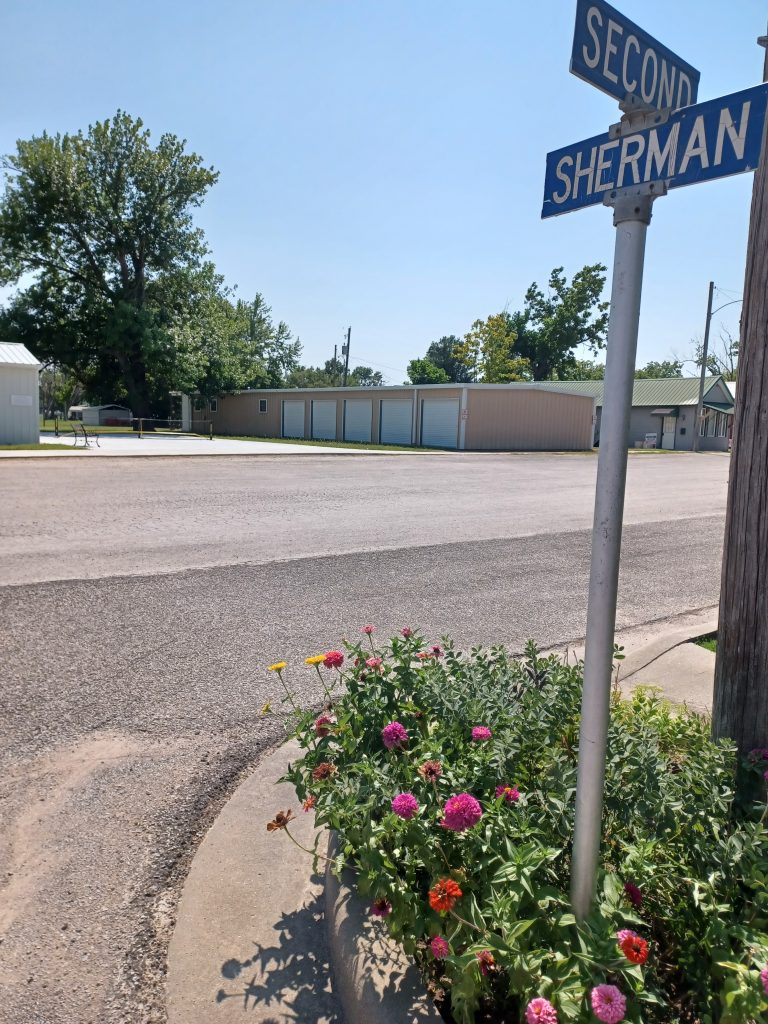
Pickleball has come to Uniontown, with equipment provided by community members and a court provided by a grant.
